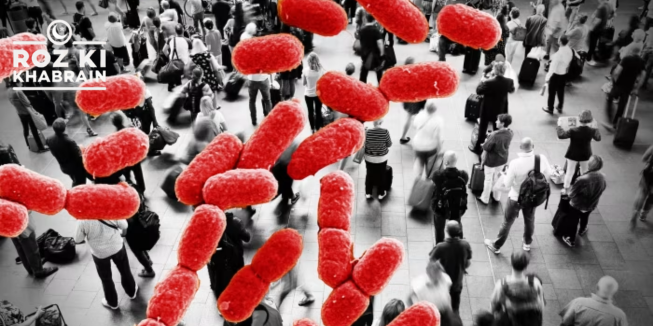Leading scientists, including Nobel laureates, have urged a global suspension of research into synthetic “mirror life” microorganisms, expressing concerns that these engineered organisms could present an “unprecedented risk” to life on Earth.
An international panel of 38 experts, including evolutionary and synthetic biologists, warned that mirror bacteria—created using mirror-image molecules—could potentially evade the immune systems of humans, animals, and plants, resulting in deadly infections that could spread uncontrollably in the environment.
Prof. Vaughn Cooper of the University of Pittsburgh emphasized, “The threat we’re discussing is unprecedented. Mirror bacteria could bypass immune responses in humans and other organisms, causing unchecked and potentially fatal infections.”
The concept of mirror life arises from the fact that biological molecules like DNA and proteins can exist in mirror-image forms. For example, natural DNA consists of “right-handed” nucleotides, and proteins are made of “left-handed” amino acids. Mirror microbes, if fully developed, would be made from reversed versions of these molecules.
Although scientists have made progress in producing individual mirror molecules for research and potential therapeutic uses, creating an entire organism from these molecules is still at least a decade away. However, the risks associated with such advancements led the panel to call for an immediate cessation of this research.
Their concerns were outlined in a detailed 299-page report and commentary published in Science journal. The report warned that mirror microbes could escape natural predators and competitors, resist existing antibiotics, and make containment or eradication nearly impossible.
The experts stated, “Unless compelling evidence shows that mirror life would not present extraordinary dangers, we believe these organisms should not be created.”
Prominent scientists, including Dr. Craig Venter, who played a significant role in sequencing the human genome, and Nobel laureates Prof. Greg Winter from the University of Cambridge and Prof. Jack Szostak from the University of Chicago, are part of the panel.
Dr. Kate Adamala, a synthetic biologist at the University of Minnesota and co-author of the report, admitted to previously working on creating a mirror cell but ceased the work last year due to the potential dangers. “We should not be creating mirror life,” she stated. “We have time to discuss this, and that’s what this report aims to kickstart—a global conversation about the ethics and safety of mirror organisms.”
The report also touched on potential applications of mirror molecules, such as innovative treatments for chronic diseases and contamination-resistant bioproduction systems. While these possibilities could offer significant benefits, the authors argued that the risks of creating mirror microbes outweigh these potential advantages.
Prof. Paul Freemont from Imperial College London, who was not involved in the report, lauded it as an “excellent example of responsible research and innovation.” He highlighted the importance of balancing the potential of mirror chemistry with rigorous safety protocols and ethical considerations.




